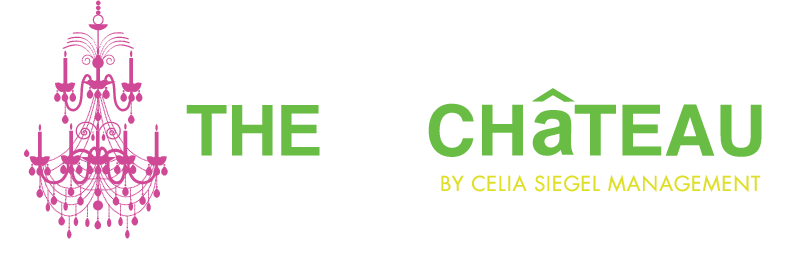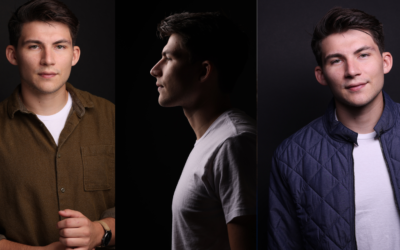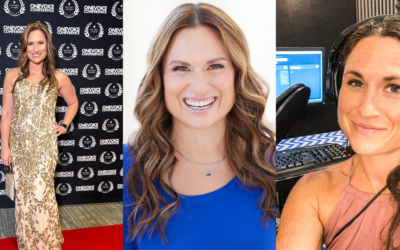George Washington III is always striving for more.
Born and raised in Kankakee, Illinois, George stayed in the Chicago area through college at Northwestern University, where he earned his B.A. in music. He moved to Charlotte, North Carolina and began working for First Union Bank, where he was eventually approached to host some internal videos. He was asked to record narration, and when he stepped into a professional studio for the first time, he knew he needed to pursue voiceover.
Since that discovery in 2003, George has represented companies like McDonald’s, Nike, Gatorade and Time Warner Cable, among many others. He is the app voice for the National Museum of African American History and Culture, and the voice of DC Universe Online’s Green Lantern, John Stewart.
George discusses how his process changes for different jobs, his goals for the future, and more in this Q&A.
What are some of the biggest challenges you find working in this industry?
The biggest challenge about being a voice actor, especially for the people who are just starting out, is sticking with it. For the folks who are just beginning, it can feel barren. It is a new experience for them to be in a situation where there is zero feedback. There is zero response for most of the things that you’re doing. You win that one job and you feel like ‘oh my gosh, look what happened!’ and then you don’t win another one for two months. That’s just part of the process. It takes time, effort, a lot of reaching out, and a lot of patience to get to the point where you are getting work without auditioning.
It’s a scary place to be! When I talk to people about this career, I tell them: don’t go into it without support. You need both emotional and financial support, because you’re not going to have the ability to just quit your job and start doing this full time right away. I coach people, and I try to warn them. You’re going to win 3% of your auditions when things are going great. That’s not going to be sustainable until you have a whole lot of places that you get auditions from. It takes so much patience and that’s the hard part to get through. Even people who are established go through fallow periods. It is the up-and-down nature of being an actor.
It is not a rejection business, but a selection business. It isn’t always a factor of how good you are. Because honestly, people auditioning you don’t always know what they want until they hear it. So you’re going to give the best audition you’ve ever given. And it’s not going to win. Not because you were bad, not because you did a poor job, but because you don’t match the sound in the casting director’s head. That’s it. All you can do is your best. Put it out there, and go on to the next one.
I made the decision that I was going to try and figure out a way to make a living with my voice. And as of now, this is what I do. This is what I wanted. And so even when there are hard days, I remind myself: this is what I wanted. I got what I wanted. I have the opportunity to do something that my dad never got to do — he had a tremendous voice. And I am able to do something that he was proud of and wished he had had a chance to do. So when things get difficult, that’s what I remind myself.
On the flip side of that, what are some of your favorite things about being a voice actor?
From a rewarding aspect, some of it isn’t the work itself. We’re doing a lot of auditioning, a lot of work that you never get to see the end result of. So, of course it is always rewarding when you do get to see a spot you did that a bunch of people saw, or a character you were that a bunch of people heard.
However, the most rewarding thing for me is the relationships. Something I stress for people who are just getting into this industry is that you’ve got to meet people. The community of voice actors is probably the most accepting and helpful community of people that you’ll meet when it comes to joining a new space. There are so many of us working, and a lot of people who are willing to help you figure out what works best for you. The only way you’ll find those people is by being a part of the various communities that are out there. I really encourage everyone to seize the opportunity of connecting in-person, whether it’s at the big conferences or smaller events. What we do most of the time is a solo act, so you need that support from other people who know what it’s like. I have friends I met at conferences 15 years ago that I still talk with every week. So that’s rewarding, the positive nature of the community.
You’ve worked with some pretty iconic brands. What’s your approach to understanding and embodying a brand’s identity through your voice?
I think it’s important to know what they are trying to do and who they’ve been as a brand over time. It’s not that often that we’re coming in to do something vastly different from what they’ve established in the past. So, it’s good to get familiar with what they’ve done already and who they’ve used before. Of course, if they communicate that they are looking for something dramatically different, then you have more license. But most of the time, that’s not the case.
So getting the feel for the brands that we see on a regular basis and the kind of idea that we’re trying to get across is important. I like to incorporate that into the analysis of what the script is saying. What does this brand normally connote? If you’re doing a luxury brand, for example, it’s always going to be a luxury brand. It’s very rarely going to be shouty. So you try and fit into, or at least give another voice, to the style that they’ve used in the past unless they want something entirely new.
You also do some great character work. What’s your process of tailoring your voice to suit different projects? What factors do you consider when adapting your style?
People who have known me for years know that my favorite job I’ve ever done is voicing Green Lantern in DC Universe Online. That’s a character that I’ve known for decades, because I’ve always been a comic book nerd. It was something my father and I did together.
So, it was a situation where I knew the character inside and out. This is a character with a long history. When you get into a character like that, there’s something to go off of. I have an idea of what his experiences were, and how the lines reflect that. In those cases when you have a long character history to work with, it’s easier.
Otherwise, you’ve got to build it. If you’re representing a character that’s only going to exist for the 30 second length of a spot, you’re going to have to build their history — maybe not all the way back to their beginning — but certainly to the beginning of their day. You need to know how they got into whatever situation they are in. What made them have an attitude at this point? Did they leave their coffee on top of the car when they were going to work? Is it raining? Did somebody cut them off? What changed them along the way to the moment that the spot starts? You can build to that moment based on all those events before that nobody else knows but you.
How has your on-camera experience influenced your approach behind the mic?
Mostly, it’s just thinking in terms of: you still have to put the people who are listening to you at ease. You still have to make them feel like you’re talking to an individual, even when you’re talking to a room. If you’re doing that live, it means you’re doing a lot of scanning, and you’re going to make sure that everybody feels a part of it.
It’s even harder on television. There was a time when I was doing part time traffic hosting. All you could do is look dead in that camera and try to make a connection. Then you never see the audience and never get any feedback. So really, it’s still a voiceover. It just so happens they can see you. Now on live television, of course, your mistakes are out there permanently. I absolutely made my share of mistakes on camera. So that’s the obvious difference, but you’re still trying to make that connection and put people at ease in what they’re hearing. That same kind of understanding has to come through whether we’re behind the mic or on camera.
You have worn many different hats — opera, hosting, coaching — how have some of these roles contributed to your success as a voice actor? Do you think your musical background impacts how you approach voiceover?
What’s interesting is that I studied voice at Northwestern, and then didn’t sing for years. I graduated from college, went to work and then didn’t sing for a long time. Then I moved down to Charlotte and I auditioned with Opera Carolina, and I sang with Opera Carolina for 12 years, and have been in many different productions throughout that time.
I tell people that being a singer gives you a few advantages. You already know about diaphragmatic breathing and it’s just a part of your normal process when you’re performing. Your ear is different. You can hear notes and hear how things are supposed to continue, you can hear the melody. You’ve been directed, which is a big thing. So to someone without a musical background getting a note like, “we want it to sound taller,” might be confusing.
A musician can visualize what they might want from somebody who sounds taller. You can implement that feedback because it’s just a part of the process of being directed in a choir or being directed as a solo singer. You can do it more quickly and process that information more quickly.
With such an impressive portfolio, what goals do you have your sights set on now?
I always want to continue growing. I currently do a little bit of promo work for Starz. That is something that I’ve been working towards for a long time, so I would love to continue doing more of that kind of work.
Narration is a huge goal of mine. I’m just now completing a television narration demo with Jeff Howell. I think I have the skills for it. I think I have the right resonance for it. I would love to continue finding narration work that I can connect with.
What is your favorite part about being on team CSM?
It seems like such a small thing, but when we submit auditions, we always get feedback from the team. That doesn’t happen with anyone else I submit auditions to, and maybe it doesn’t make a huge difference to some people. But for performers like me, even though I’ve been doing this for so long, it just feels good to hear people respond to what you do. And of course, having access to these great auditions and a sense that I’m getting opportunities to move my career forward in the right direction.
What’s in Your Booth? Things George Washington III Can’t Live Without
- Water! We’ll start with the obvious one, because there’s a couple of things I’ll share that are very important for me.
- My Mother’s Cup. In 2020, my mother was diagnosed with cancer, and I was her caregiver. I bought this cup for her so that she could drink easier, and now I use it to help me do my job. It reminds me of her in the booth every day.
- My Parent’s Ashes. We also lost my father to COVID in 2020. Recently, my sister-in-law gifted us with these beautiful glass orbs, which have both my mother and father’s ashes in them. So we all have a bit of mom and dad, and it sits right there in front of me.
- My Super-Hero Figurines. I’m a huge superhero nerd. So of course I have John Stewart’s Green Lantern who I was the voice of, and we’ve got Captain Marvel, Spock, and some others. I have my real-life superheroes of my parents and then these character superheroes as well.
You can keep up with George on Instagram and check out his demos here.





0 Comments